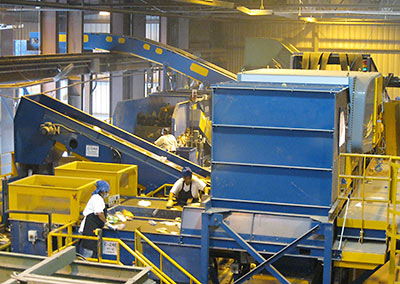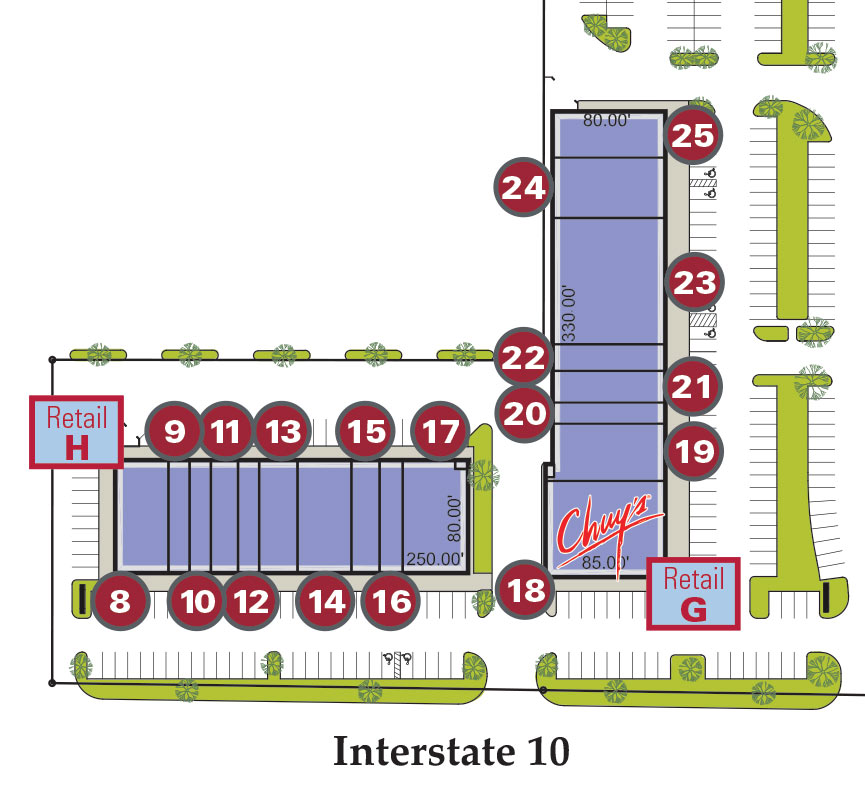
The city of Houston has applied for a grant to help it develop a “dirty MRF” (rhymes with “smurf”) — a recycling center that would sort and mine garbage, using an assortment of machines, scanners, and density separators to separate recyclables, electrical items, compost, and dry materials that could be resold. A materials recovery facility envisioned by sustainability director Laura Spanjian and chief development officer Andy Icken would be similar to one in Roseville, California, that opened in 2007 and “harvests” almost half the waste sent to it. You can follow along a kiddie-led tour of that MRF in this video:
***
With its own dirty MRF, Houston residents wouldn’t need to sort their recycling or even separate it from the rest of the trash. City or private trucks would save a separate weekly pickup from residences, since all waste would go into a single bin. The city hasn’t chosen a private partner for its effort yet; building and putting in place such a facility would take 2 to 3 years and cost an estimated $100 million.
- City sees way for homes to recycle more by sorting less [Houston Chronicle]
- Innovative Dirty MRF, Roseville, California, USA [Machinex]





Cool idea – hopefully the city can, net, make money on it.
Harrisburg, PA is bankrupt from a poorly-handled waste-to-energy plant, so it can be a tripping point.
Considering I once accidently threw away some extemely lovely and horribly expensive jewely, I can only hope somtime in the future, some archaelogists excavate a Houston landfill.
As an industry insider I am a huge fan of the idea and I hope that the COH can get it together and make it happen. These systems have the potential to be modular, so they could get in now and as the technology develops add more recovery opportunities (including waste-to-energy).
Very exciting.
Harrisburg, PA has less than 50,000 residents and the local economy is terrible. Pretty sure it wasn’t the waste-to-energy plant that put that city in a tough situation. That said, Mitt probably used that plant in his “half” the green energy startups with governmental funding have gone under calculation.
“dirty MRF†(rhymes with “smurfâ€)
That’s the name of an Irish rapper, I think.
Every article you find on Harrisburg’s bankruptcy filing talks about the WTE plant.
I certainly wasn’t suggesting that such a thing could bankrupt Houston, just that such innovative plants have to be done right.
Well, I believe its the future! Hope this happens. It’s about time.
This would be amazing for Houston. I would be thrilled.
As another industry insider, I can tell you why there are virtually none of these in the country: They are very expensive and dificult to get right. High O&M costs, contaminated material on the exit side.
We already have waste to energy here, every major landfill in the Houston area does gas recovery – either sent off site to an end user or on-site power generation.
I suppose the technology will EVENTUALLY be feasible.
Like desalination of seawater: there’s no shortage of water on the planet, but to make it potable is extremely expensive.
You gotta crawl before you can run…letting the perfect be the enemy of the good drives me up the wall. Strict dollars and cents aside, putting garbage into a hermetic tomb is just a crummy idea. It’s the municipal equivalent of the junk room.
If this is untried technology, the city’s funds would be much better spent on expanding it’s curbside automated recycling. That’s where you have a 96-gal covered bin on wheels into which you throw all your stuff, including glass, no sorting needed. It’s great! I was shocked to read, in the Chron article, that only 1/3 of city residents have this service; 1/3 still have to manually sort materials into those miserable little boxes, which then fill with rainwater and breed mosquitoes. Shockingly, 1/3 of city residents have no curbside recycling at all. Fill these gaps first.
What happens when a bunch of recyclables covered in wet food, pet, and human waste goes through one of these facilities?? Because this is what 40% of the material in your garbage bin is…..
By encouraging mixing and not source separating out your garbage, you are simply creating landfill cover. There are little to no markets for the end products of these facilities.
Zero Waste Canada
The way of tomorrow is here today single stream recycling